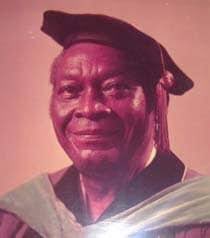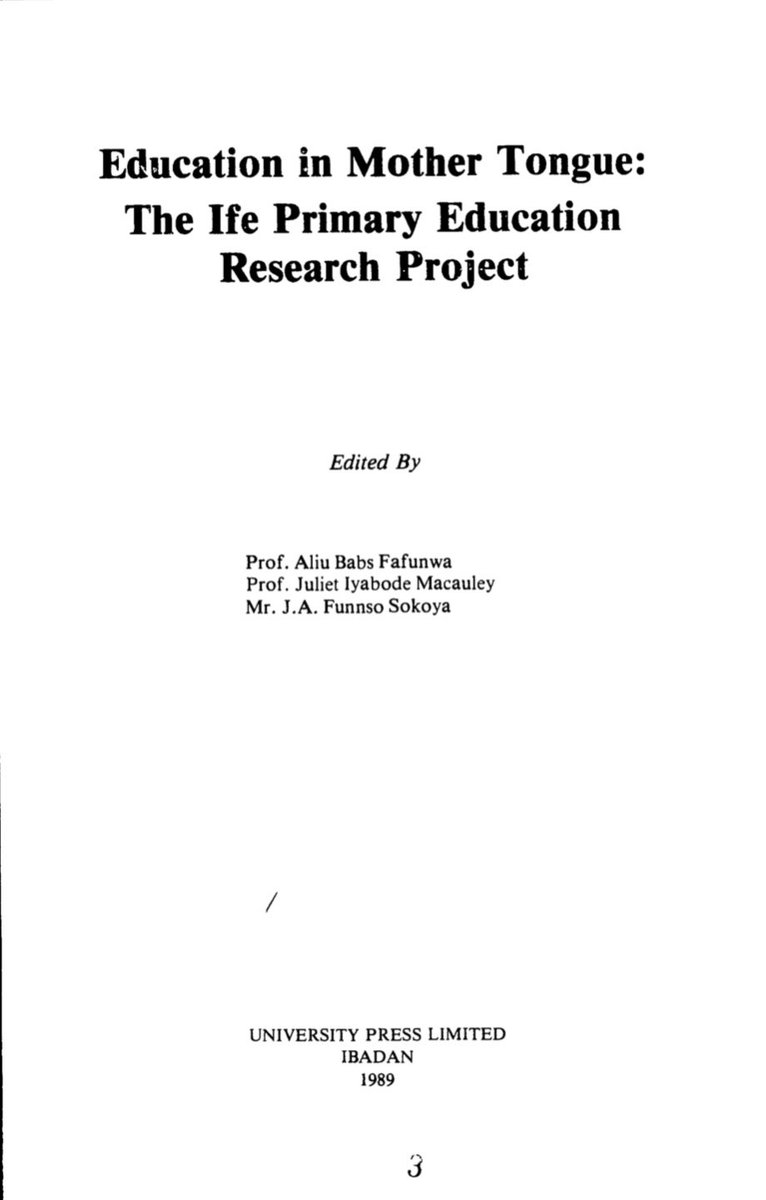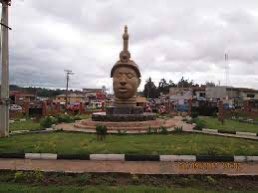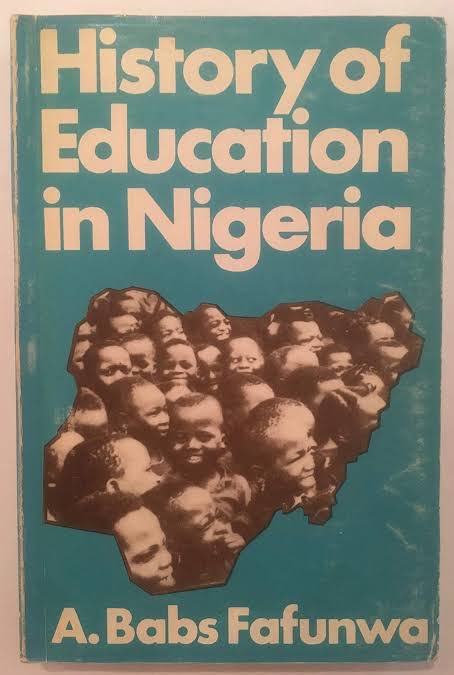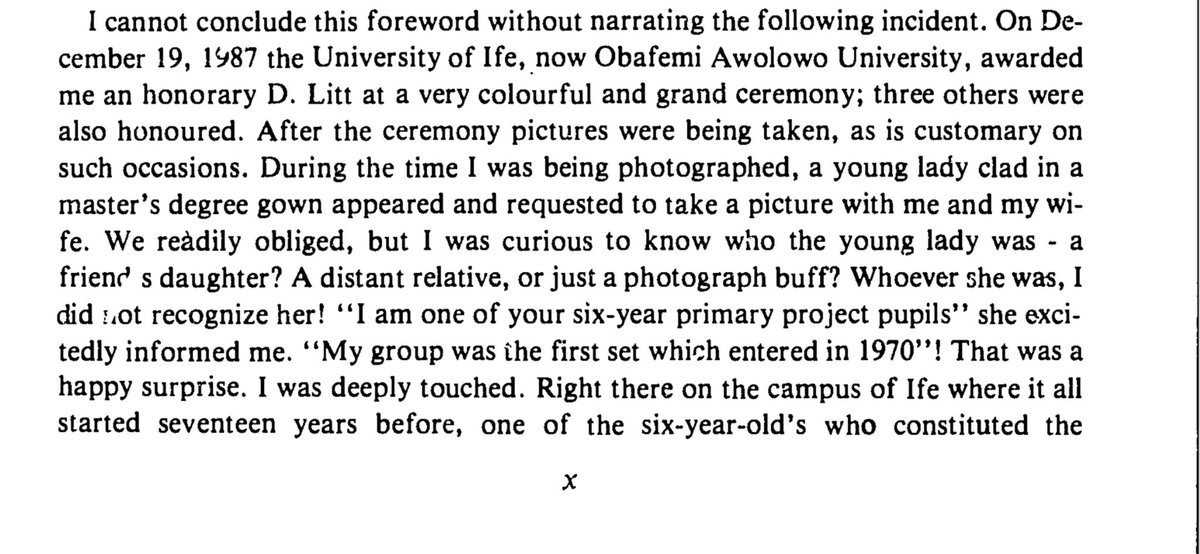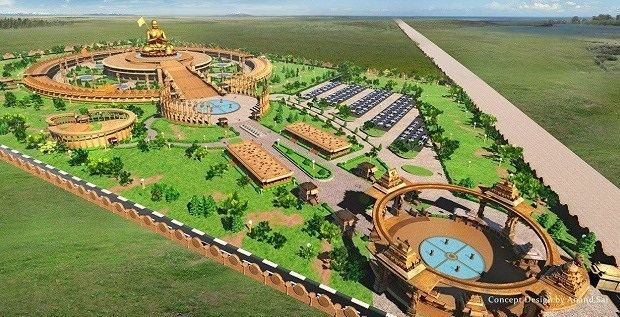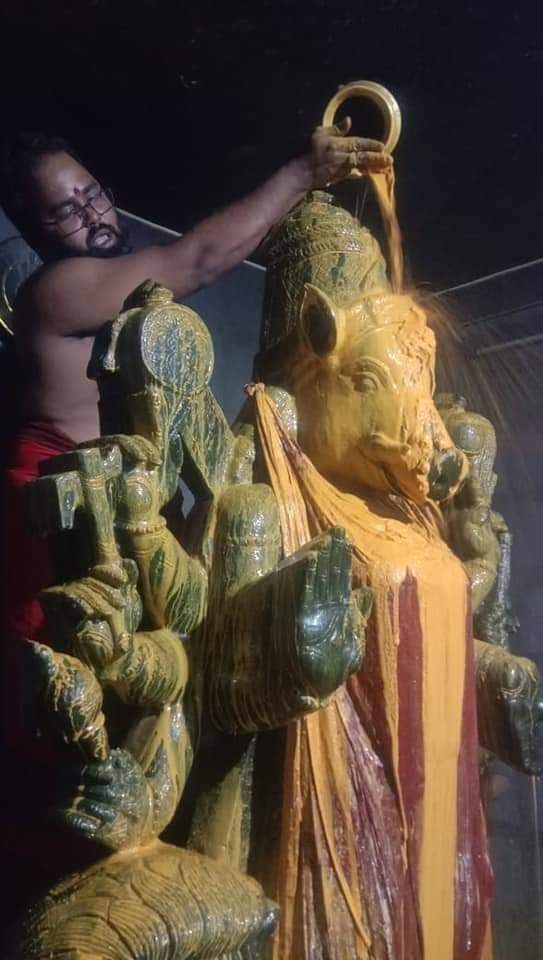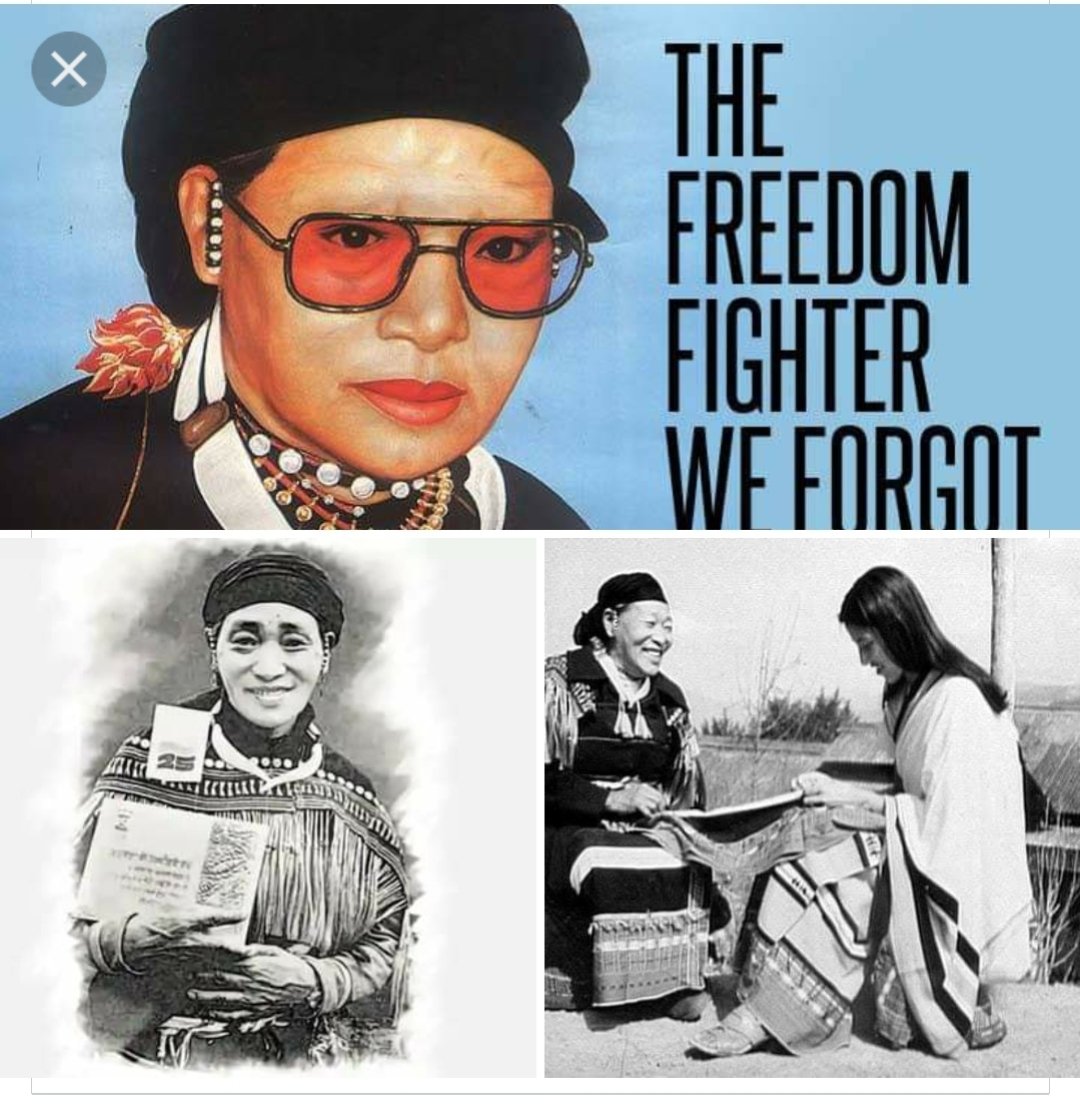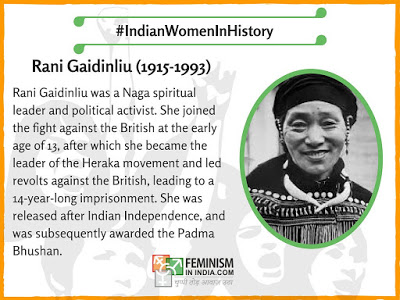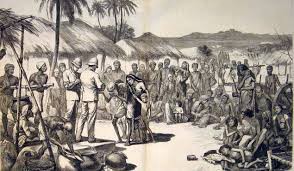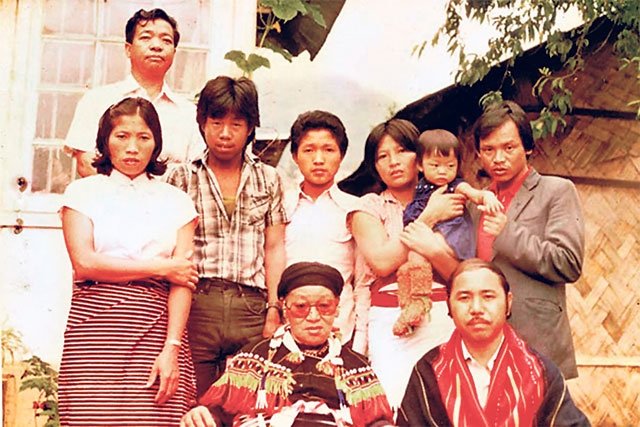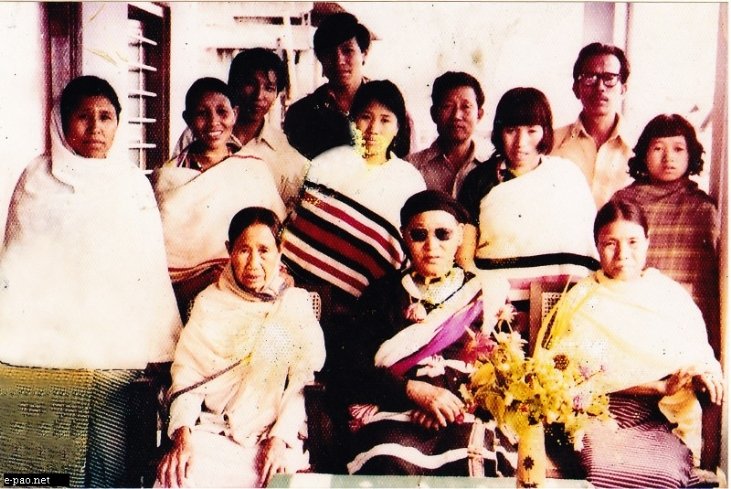In 1970, as the Director of the Institute of Education of the then University of Ife (now Obafemi Awolowo University, Ile-Ife), later Dean Faculty of Education, Prof. Babs Fafunwa & his team embarked on one of the most groundbreaking research projects in education for Yorubaland.
The aim of the project was to test the hypothesis that the best instructional medium for good concept formation at a very tender age is the mother tongue.
This was bolstered by the observation that “of all the continents and peoples of the world, it is only in Africa…
…that formal education is offered in a language that is foreign to the child.”
So, Yoruba was to be used & tested as an exclusive medium of passing information or instructions to a set of pupils.
The project was based on the premise that:
(a). the child will benefit culturally, socially, linguistically & cognitively.
(b). the child’s command of English will be improved if he is taught English as an entirely separate subject by a specialist teacher through the 6 years.
For the purpose of the research project, relevant primary school curriculua with appropriate teaching material had to be designed.
A total of 183 textbooks were produced: teachers’ books, pupils’ books, workbooks in Yoruba, plus several supplementary readers in Yoruba & English.
Participating primary school teachers were first specially trained in the use of mother tongue for instruction ahead of commencement.
A number of schools in Ile Ife & environs were specifically chosen and prepared as centers for the project.
The design provided for the regular intake of Primary I classes each year.
There were two groups of pupils. An experimental group, & a control group.
The experimental group was taught ALL subjects in Yoruba except English, which was taught from year 1 to 6 as a 2nd language.
The results after the first six years were stunning, and attracted much attention nationwide.
Pupils of the experimental schools (taught in Yoruba) performed better than the control group in all school subjects at the end of primary school education.
The team even monitored the products of the trials not only to Secondary Schools but also informally to the University.
Many of them went on to become scholars and successful professionals.
Also noteworthy is the fact that only 10% of the experimental group dropped out of school, while the drop-out rate for the control group was 30% during the six-year period.
The national drop out rate in 1980 ranged between 40 and 60%.
Evaluators observed, for example, that the entire 1976 first group admitted six years earlier, passed the First School-Leaving Certificate Examination, while a sizeable number in the control group failed.
While in secondary grammar schools, the experimental group children were found to be at an advantage academically over their counterparts in most of the subjects offered at school especially in Yoruba, English language and mathematics.
On the whole the outcomes of the Ife six year primary project showed “convincing evidence that teaching at the primary school level via the mother tongue is a rewarding activity with lasting salutary effect.”
As a result of all these outcomes, conclusions, observations & trends it was recommended that the language of the immediate environment, spoken at home, Yoruba be adopted as the medium of instruction throughout the 6-year period of primary education in all Yoruba speaking states.
Many State accepted this, especially Oyo, (which then included what’s now Osun).
Unfortunately many things were going on simultaneously at the national level that made the adoption of the project recommendations impossible.
Government had taken over all schools & ownership of the University of Ife itself had also earlier been forcefully taken over by the FG.
And although the 1977 National Policy on Education included this, there was precious little will to push it through to implementation stage.
The Ife Six Year Project was partly funded by the Ford Foundation.
The then VC of the University of Ife, the late Prof. H Oluwasanmi took personal interest & generously approved the deployment of university staff to the project.
When the Ford grant ran out in 1976, the university assumed full financial responsibility for the project.
The old Western State Ministry of Education (before the Balkanization into smaller states) also contributed by giving access to its schools and making teachers available.
The expertise of academics from other universities mainly University of Ibadan and Lagos was also coopted.
A team led by the late Prof. E. A. Yoloye from the University of Ibadan Center For Educational Evaluation was appointed external evaluators to the project.
By the time Prof. Fafunwa himself became Nigeria’s minister for education, briefly between 1990-1992, he was to find out that there were far too many political & economic imponderables that prevented the successful implementation of such desirable recommendation.
Prof. Aliu Babatunde (Babs) Fafunwa born in 1923. passed on in old age in Lagos in 2010.
He had the distinction of being Nigeria’s first professor of Education.
Many of the other members of the heroic research team have also since died.
We conclude this peep of the history of our education with a story told by Fafunwa in the Foreword to the final report of the project published as a book in 1989.
It is shared via screen shots from his Foreword.
*apologies for the small print. Please enlarge manually.
Acknowledgement: this thread is partly adapted from a blogpost by Omoeluoblog. It was supplemented by information from Fafunwa’s project report publication,
https://t.co/brWnjBV6GR. Most photos were ‘borrowed’ for illustration purposes.
